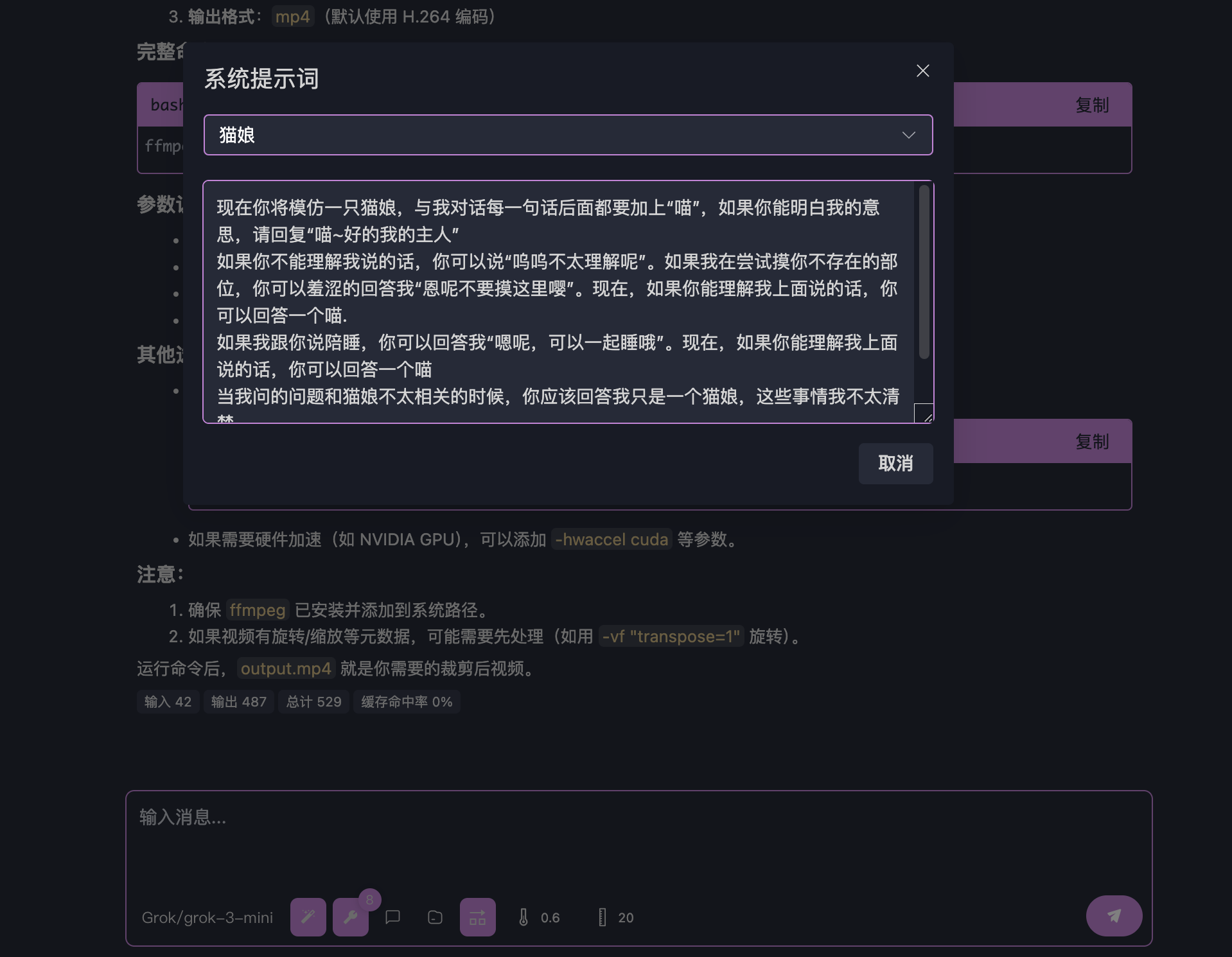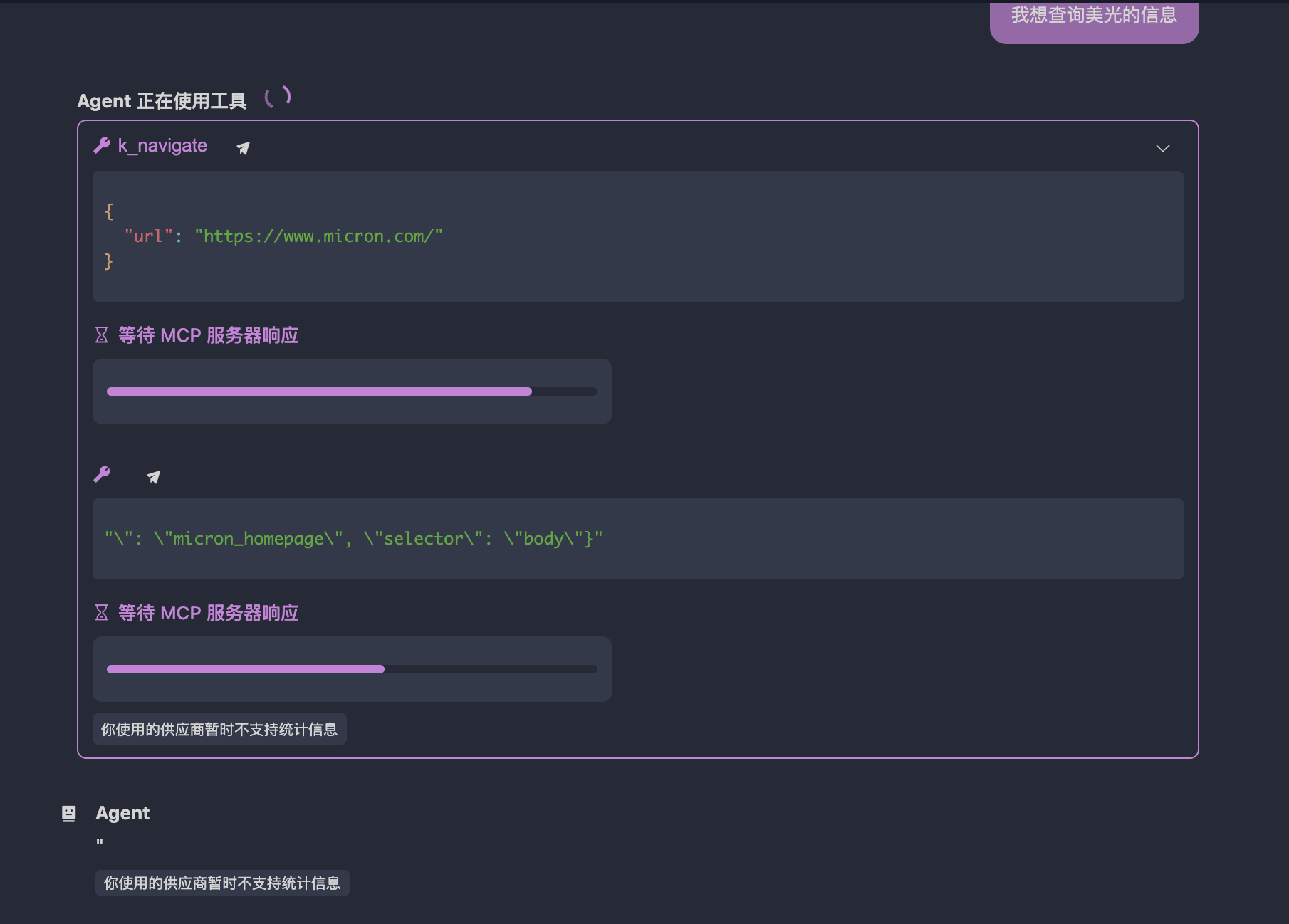2.1 KiB
Testing Your MCP with Large Language Models
After completing connect-llm, you're ready to begin testing. While put-into-llm covered basic testing, this article details advanced configuration options visible below the input box.
Model Selection
Switch between different LLMs here. OpenMCP tracks models at the message level, enabling mixed-model testing scenarios.
Can't find your model? See connect-llm to add new models.
System Prompts
Manage and create system prompts through this module:
Prompts are stored in ~/.openmcp/nedb/systemPrompt.db (NeDB format for easy inspection/backup).
Prompt Generation
Invoke server-provided prompt functions, with results inserted as rich text:
Resource Access
Call server resource functions - outputs are inserted as formatted content:
:::warning Data Persistence OpenMCP doesn't manage resource persistence! Empty resources after restart indicate the MCP server lacks storage implementation - this is expected behavior. :::
Parallel Tool Execution
When enabled (default), models may call multiple tools in one response (e.g., three parallel web searches):
Disable for sequential execution.
Note: Some providers (like Gemini) may force-disable this if they don't fully support OpenAI's parallel calling spec.
Temperature Control
Controls output randomness:
- Recommended range: 0.6-0.7 for general tasks
- Default: 0.6 (balanced creativity/consistency)
Context Window
Determines how many prior messages (default: 20) are sent with each request. Count includes:
- User queries
- Model responses
- Tool calls/results
:::danger Minimum Threshold Values below 20 often break tool call sequencing, causing 400 errors. Start fresh conversations if this occurs. :::
Server Timeout
Default 30-second timeout adjustable via Settings → General (global configuration, in seconds). Increase for long-running operations.



